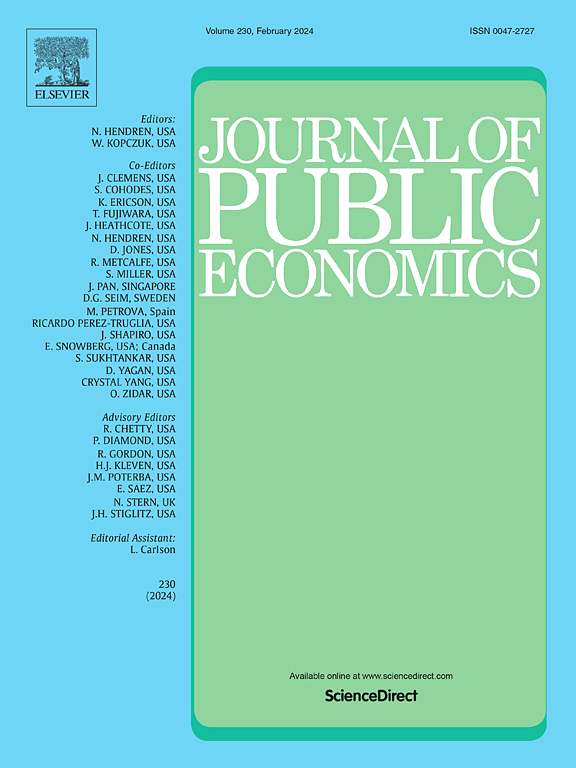揭穿社交媒体上的“假新闻”:事实核查和媒体素养干预的即时和短期影响
IF 4.8
1区 经济学
Q1 ECONOMICS
引用次数: 0
摘要
我们进行了一项随机调查实验,以比较事实核查与简短的媒体素养干预的即时和短期效果。我们表明,事实核查主要影响它直接处理的特定假新闻,而媒体素养有助于更普遍地区分虚假和正确的信息,无论是立即还是在干预后两周左右。一种合理的机制是,媒体素养使参与者能够批判性地评估社交媒体上的帖子,而事实核查未能提高他们的技能。我们的研究结果促进了媒体素养作为打击假新闻的有效工具,这是廉价、可扩展且易于实施的。本文章由计算机程序翻译,如有差异,请以英文原文为准。
Debunking “fake news” on social media: Immediate and short-term effects of fact-checking and media literacy interventions
We conduct a randomized survey experiment to compare the immediate and short-term effects of fact-checking to a brief media literacy intervention. We show that fact-checking primarily affects the specific fake news it directly addresses, whereas media literacy helps to distinguish between false and correct information more generally, both immediately and around two weeks after the intervention. A plausible mechanism is that media literacy enables participants to critically evaluate social media postings, while fact-checking fails to enhance their skills as much. Our results promote media literacy as an effective tool to fight fake news, that is cheap, scalable, and easy-to-implement.
求助全文
通过发布文献求助,成功后即可免费获取论文全文。
去求助
来源期刊

Journal of Public Economics
ECONOMICS-
CiteScore
14.10
自引率
2.00%
发文量
139
审稿时长
70 days
期刊介绍:
The Journal of Public Economics aims to promote original scientific research in the field of public economics, focusing on the utilization of contemporary economic theory and quantitative analysis methodologies. It serves as a platform for the international scholarly community to engage in discussions on public policy matters.
 求助内容:
求助内容: 应助结果提醒方式:
应助结果提醒方式:


